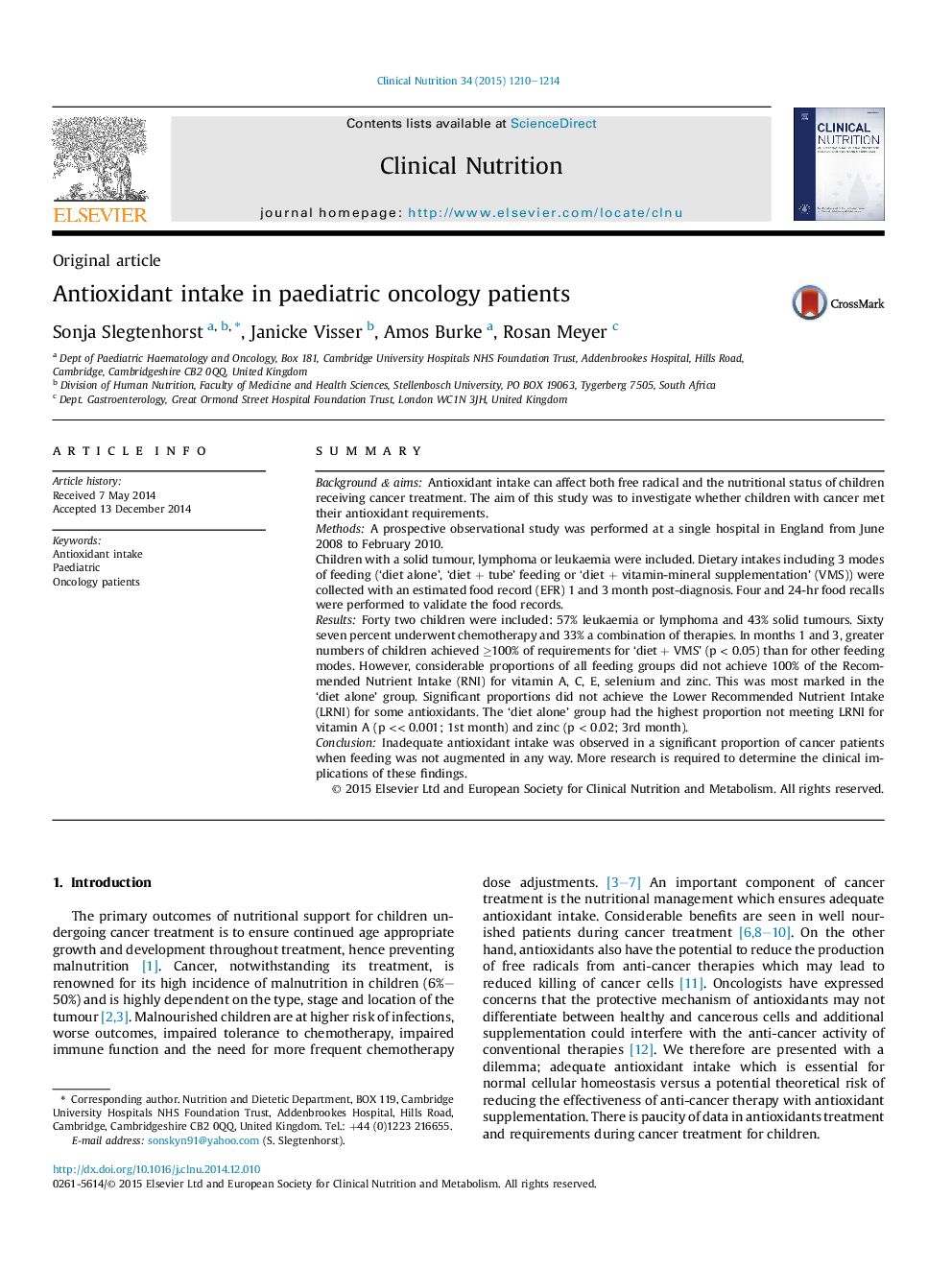| Article ID | Journal | Published Year | Pages | File Type |
|---|---|---|---|---|
| 2689339 | Clinical Nutrition | 2015 | 5 Pages |
SummaryBackground & aimsAntioxidant intake can affect both free radical and the nutritional status of children receiving cancer treatment. The aim of this study was to investigate whether children with cancer met their antioxidant requirements.MethodsA prospective observational study was performed at a single hospital in England from June 2008 to February 2010.Children with a solid tumour, lymphoma or leukaemia were included. Dietary intakes including 3 modes of feeding (‘diet alone’, ‘diet + tube’ feeding or ‘diet + vitamin-mineral supplementation’ (VMS)) were collected with an estimated food record (EFR) 1 and 3 month post-diagnosis. Four and 24-hr food recalls were performed to validate the food records.ResultsForty two children were included: 57% leukaemia or lymphoma and 43% solid tumours. Sixty seven percent underwent chemotherapy and 33% a combination of therapies. In months 1 and 3, greater numbers of children achieved ≥100% of requirements for ‘diet + VMS’ (p < 0.05) than for other feeding modes. However, considerable proportions of all feeding groups did not achieve 100% of the Recommended Nutrient Intake (RNI) for vitamin A, C, E, selenium and zinc. This was most marked in the ‘diet alone’ group. Significant proportions did not achieve the Lower Recommended Nutrient Intake (LRNI) for some antioxidants. The ‘diet alone’ group had the highest proportion not meeting LRNI for vitamin A (p << 0.001; 1st month) and zinc (p < 0.02; 3rd month).ConclusionInadequate antioxidant intake was observed in a significant proportion of cancer patients when feeding was not augmented in any way. More research is required to determine the clinical implications of these findings.
